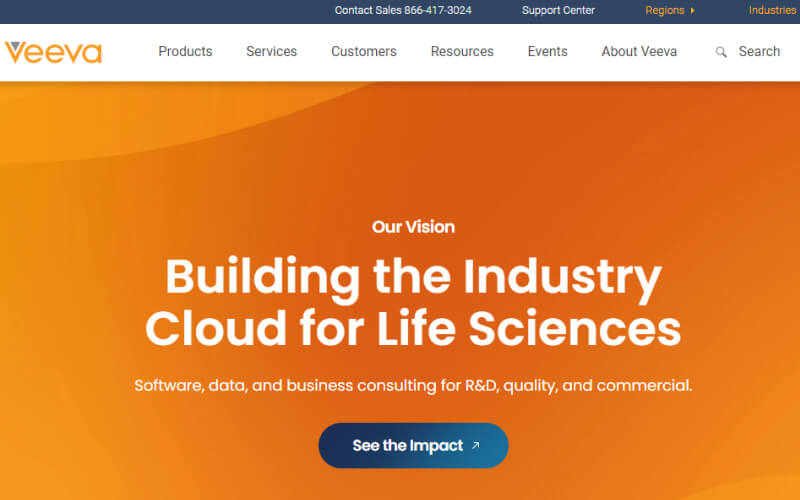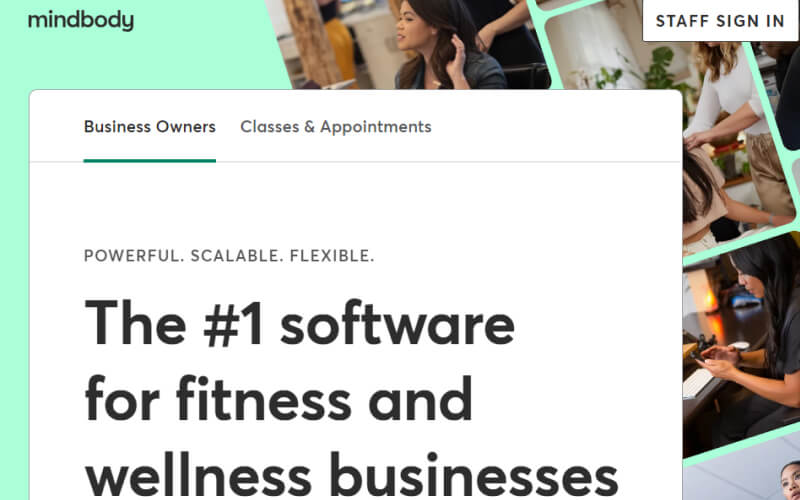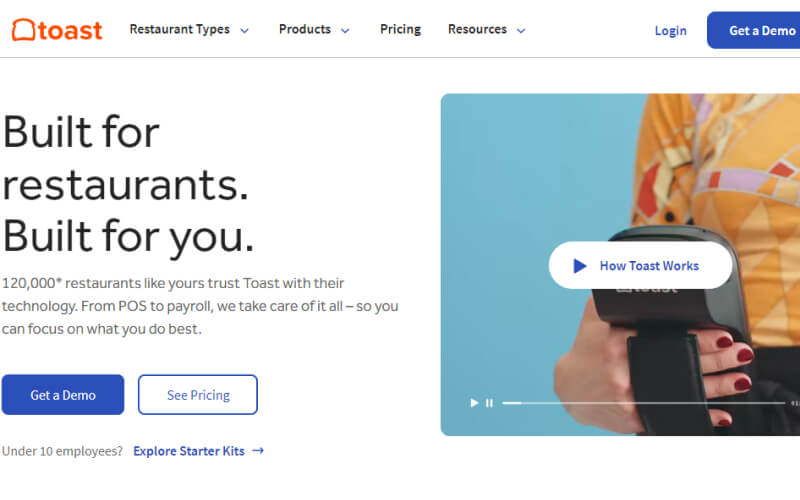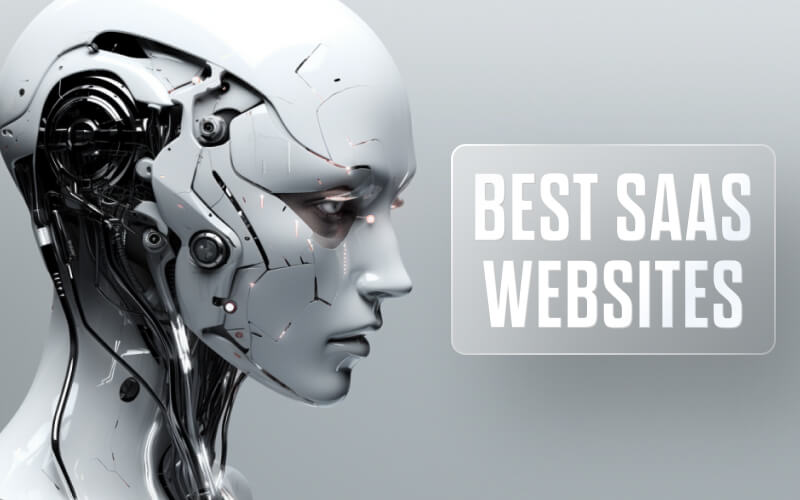In this digital age, Software as a Service (SaaS) has changed the way businesses work, with cloud-based solutions at your fingertips. No more expensive on-premise software installations, businesses of all sizes can use the latest tools. SaaS provides flexibility, scalability, and cost-effectiveness, making it a must-have in modern business.
SaaS can be broadly classified into two types: horizontal SaaS and vertical SaaS, each with distinct business models.
Horizontal SaaS solutions are designed to serve multiple industries and business types, with general features that cater to common business needs. For example, platforms like Salesforce, Dropbox, and HubSpot are used across industries for CRM, file storage, and marketing automation. They focus on broad applicability rather than specialization. These companies often adopt a subscription-based business model, allowing users to pay a recurring fee for access to the software.
Vertical SaaS targets specific industries or niche markets, with software solutions that cater to the unique challenges and workflows of a particular sector. Vertical SaaS companies go deep into industry-specific needs, with specialized features that solve problems that horizontal SaaS can’t. For example, Veeva Systems provides cloud-based solutions for the life sciences industry, focusing on regulatory compliance and data management in pharmaceuticals. Vertical SaaS companies also often use subscription-based models but tailor their offerings to the specific requirements of their target industries.
Vertical SaaS is important because it addresses industry-specific pain points. By providing customized solutions, vertical SaaS companies help businesses to optimize, improve efficiency, and enhance customer experience. As industries get more complex, the demand for industry-specific software is growing, making vertical SaaS a key driver of innovation across many sectors. This focused approach delivers more value than horizontal models.
What is Vertical SaaS
Vertical SaaS means cloud based software solutions for a specific industry or niche market. Unlike general purpose software that caters to common business needs across multiple sectors, vertical SaaS products are designed to meet the industry specific needs. These solutions go beyond standard features, with customized tools that match the workflows, regulatory requirements and operational challenges of businesses in a particular market segment. Effective software development in this context requires addressing the complexity and resource-intensive nature of building solutions tailored for specific industries, blending industry expertise with technological innovation.
Vertical SaaS products have:
Industry Specific Features: Vertical SaaS solutions are built with the specific industry in mind. For example in healthcare industry, the software may have features for patient management, compliance tracking and electronic health records (EHR).
Customization and Flexibility: These platforms often allow for more customization to suit specific needs within an industry. This can include custom dashboards, custom reporting and specialized integrations with industry tools.
Deep understanding of Industry Pain Points: Vertical SaaS providers have deep understanding of the industry they serve, they can create solutions that address the pain points that horizontal SaaS can’t.
Focus on Compliance and Regulations: Many industries like healthcare and finance have strict regulatory requirements. Vertical SaaS providers ensure their software complies with industry standards, saving businesses time and resources.
Enhancing Revenue from Existing Customers: Strategies to enhance revenue generation from existing customers include offering expanded services and tailored solutions that meet specific industry needs. This approach drives higher customer lifetime value and fosters loyalty.
Vertical SaaS vs. Horizontal SaaS
The main difference between vertical and horizontal SaaS is scope. Vertical SaaS is one industry, horizontal SaaS is many industries with general purpose tools. For example, horizontal SaaS platforms like Google Workspace, Salesforce, QuickBooks, and Slack have universal features like email, document sharing, and team collaboration that can be used across many sectors. These horizontal SaaS businesses cater to diverse business needs, enabling lower customer acquisition costs and the ability to target a wide range of market segments through diverse marketing strategies.
But horizontal SaaS products may not have the deep functionality for certain niche operations. Horizontal SaaS companies also face challenges in differentiating their offerings amidst competition. Vertical SaaS companies, on the other hand, cater to specific needs, offering solutions that help businesses be more efficient within their industry. This specialization gives vertical SaaS companies a competitive advantage by offering more tailored services compared to horizontal SaaS companies that can be too generic for industry-specific needs.
Industries Served by Vertical SaaS
Vertical SaaS has been successful in many industries:
Healthcare: Veeva Systems offers industry specific solutions for life sciences, compliance, CRM and data management.
Real Estate: Vertical SaaS platforms offer property management tools, financial tracking and tenant management software.
Finance: Fintech vertical SaaS solutions focus on payment processing, regulatory compliance and risk management.
Retail: Retail specific SaaS products offer inventory management, point of sale (POS) systems and customer analytics for retail businesses.
Vertical software targets well-defined industry needs, allowing companies to establish a strong foothold and optimize their offerings.
Vertical SaaS is expanding into more sectors and filling the gaps where horizontal SaaS falls short.
Key Features of Vertical SaaS
Vertical SaaS platforms are designed to address the specific needs of a particular industry, unlike general purpose horizontal SaaS solutions. Here are the key features that define vertical SaaS platforms:
Industry Specific Functionality: The core advantage of vertical SaaS is its focus on industry specific workflows, challenges and regulations. These platforms offer features for industries like healthcare, retail or manufacturing. For example healthcare SaaS may include patient data management and regulatory compliance, manufacturing solutions may address supply chain logistics and automation. By customizing software to meet the exact needs of an industry, vertical SaaS improves operational efficiency and user experience.
Proprietary Data: Vertical SaaS platforms use proprietary industry specific data to offer unique insights and advanced analytics. This data helps businesses make better decisions and be more competitive. For example retail SaaS may use sales data to offer predictive analytics to help businesses optimize inventory and customer engagement. By offering industry specific insights, vertical SaaS companies differentiate themselves and deliver more value to customers.
Integrated Services and Offerings: Vertical SaaS often provides a wide range of integrated services, reducing the need for multiple software products. These platforms may include essential features like payment processing, regulatory compliance tools or professional services. For example financial SaaS solutions may bundle payment gateways, risk assessment tools and compliance management into one platform, helping businesses to operate more smoothly and cost effectively. Additionally, vertical SaaS vendors leverage artificial intelligence to create specialized software solutions tailored to specific industries, ensuring scalability and seamless integration capabilities.
Annual Recurring Revenue (ARR) Model: Like other SaaS models, vertical SaaS platforms use the Annual Recurring Revenue (ARR) model where customers pay for the software on a recurring basis. This subscription based model ensures stable revenue for the provider and long term customer relationships. Since vertical SaaS platforms are deeply integrated into industry specific operations, businesses are less likely to switch to general purpose tools, resulting in higher customer retention rates.
In summary, vertical SaaS stands out by offering industry-tailored functionality, leveraging proprietary data, integrating diverse services, and using an ARR model, making it a valuable solution for businesses looking to address specialized challenges in their respective sectors.
Benefits of Vertical SaaS
Vertical SaaS has many benefits for businesses in specialized industries, by focusing on niche markets and highly customized solutions. The SaaS industry has seen rapid growth and evolution, particularly noting its substantial expansion during the pandemic. Here are some of the main benefits:
Competitive Advantage in Niche Markets
One of the big advantages of vertical SaaS is competitive advantage in niche markets. Horizontal SaaS platforms serve a broad range of industries, vertical SaaS solutions serve a specific industry. This means vertical SaaS providers can build features and tools that directly address the specific pain points of that industry.
For example Veeva Systems, a vertical SaaS provider for the life sciences industry, only serves regulatory compliance, data management and CRM for pharma companies. By offering features that general SaaS platforms don’t, vertical SaaS companies can own their market and make it hard for competitors to match their industry expertise and functionality.
Better Customer Insights and Understanding of Pain Points
Vertical SaaS providers have deep industry knowledge, they understand the specific pain points and challenges of their target market. This comes from working closely with clients in the same industry, collecting proprietary data and continuously improving their products to meet evolving industry standards.
By understanding the core operations, workflows and regulations of an industry, vertical SaaS companies can offer more personalized solutions that solve immediate problems and anticipate future needs. This level of customization leads to stronger relationships with clients, higher customer satisfaction and retention. They can also offer better support as they have a deep understanding of their customers’ business processes.
Better Marketing Strategies and Targeted Campaigns
Vertical SaaS companies can use their industry focus to create better marketing strategies that target specific pain points and business needs. Since they are in a niche market, vertical SaaS businesses can create highly targeted marketing campaigns that resonate with potential customers.
By addressing industry specific challenges, vertical SaaS providers can deliver more targeted and effective marketing messages, which builds customer trust and engagement. Targeted campaigns also allow vertical SaaS companies to show the unique value and ROI of their software which can lead to shorter sales cycles and more successful customer acquisition.
More Upsell Opportunities
Vertical SaaS platforms being embedded in their clients’ operations have more opportunities to offer additional features or services as the business grows. Since vertical SaaS solutions are built to address industry specific needs, customers are more likely to use these platforms as they grow, creating upsell opportunities.
For example as businesses grow they may need more advanced features, premium support or additional modules for new industry regulations. Vertical SaaS companies can capitalize on this by offering upgraded packages or add-on services, increasing Annual Recurring Revenue (ARR) and more value to customers.
This competitive advantage, deep customer insights, targeted marketing and upsell opportunities allows vertical SaaS businesses to own their niche and build long term customer relationships.
Vertical SaaS Vendors
Vertical SaaS has carved out a space in the software industry by offering industry specific solutions. Here are some notable vertical SaaS companies and what they offer:
Veeva Systems

Veeva Systems is a cloud based solution for the life sciences industry, serving pharma, biotech and medical devices. Their software addresses regulatory compliance, customer relationship management (CRM) and clinical trial management. Veeva helps companies navigate complex healthcare regulations and optimize drug development and commercialization. Their deep industry knowledge and commitment to meeting strict regulatory requirements has made Veeva a success, with ARR over $2 billion.
Procore

Procore is the construction industry’s cloud-based platform for managing project workflows, budgets and compliance. Its project management, document control and financial tools are built for construction professionals. Procore solves the unique problems of construction, such as managing complex projects with many stakeholders and meeting safety regulations. With real-time collaboration and mobile access Procore has become a must have for construction teams and has grown so fast it’s become the market leader.
Mindbody

Mindbody serves the wellness industry, including fitness studios, salons and spas, with scheduling, booking, customer management and marketing tools for wellness professionals. By simplifying operations and enhancing customer experiences Mindbody has become the software of choice for thousands of small to medium sized wellness businesses. A key feature of Mindbody is its proprietary data analytics which gives businesses insights into customer behaviour so they can make data driven decisions to increase revenue and customer retention.
Toast

Toast is for the restaurant industry, with point of sale (POS) systems, payment processing, inventory management and customer relationship tools. By providing an industry specific platform for restaurants Toast helps businesses simplify operations, manage orders and enhance customer experiences. Its focus on hospitality has helped Toast capture a lot of market share and is one of the fastest growing vertical SaaS companies.
In summary these vertical SaaS companies show how industry specific solutions can solve the unique problems and needs of different industries.
Challenges in the Vertical SaaS Space
While vertical SaaS provides industry specific solutions, it has its own set of challenges that can hinder growth and scalability.
Understanding Industry Requirements
One of the biggest challenges for vertical SaaS companies is understanding the requirements of each industry they serve. Every sector has its own regulations, workflows and pain points and vertical SaaS providers must have deep knowledge of these nuances to build solutions that are not only functional but also compliant with industry standards. This can be a resource intensive process that requires ongoing collaboration with industry experts, constant updates and customization to meet evolving regulations and customer expectations.
Competition from Horizontal SaaS Companies
While vertical SaaS platforms provide industry specific solutions, they often compete with horizontal SaaS companies. Horizontal SaaS providers like Salesforce or Microsoft serve many industries and have more resources to create general purpose features that appeal to a broader audience. Horizontal SaaS companies have bigger marketing budgets and more established brands which makes it tough for vertical SaaS startups to compete, especially when horizontal providers add industry specific modules to their platform.
Customer Acquisition and Retention Challenges
Vertical SaaS businesses have to navigate the complexities of customer acquisition and retention in niche markets. Since they serve a smaller customer base it’s harder for vertical SaaS companies to scale fast. Acquiring customers in specific industries requires more targeted marketing and longer sales cycles as businesses are more hesitant to adopt industry specific software. Retention can also be tough if the software doesn’t adapt quickly to industry regulations or customer needs and customers churn.
These challenges highlight the importance of deep industry expertise, strategic marketing, and continuous product development for vertical SaaS companies to thrive in their niche markets.
Vertical SaaS Trends
As vertical SaaS continues to evolve, here are the trends that are shaping its growth and transformation across industries.
Vertical SaaS in Various Industries
Vertical SaaS is growing fast as industries like healthcare, construction, retail and finance are demanding industry specific solutions. Unlike horizontal SaaS which offers broad functionality, vertical SaaS offers customised tools for specific industries. This is driven by the demand for software that can streamline workflows, comply and increase operational efficiency. According to recent reports, the vertical SaaS market is growing fast as businesses are looking for purpose built solutions that offer more value than one size fits all software.
New Technologies (e.g., Machine Learning) Impacting Vertical SaaS
New technologies, particularly machine learning (ML) and artificial intelligence (AI) are changing the capabilities of vertical SaaS platforms. ML is enabling these platforms to provide advanced analytics, automate tasks and provide recommendations based on industry specific data. For example in healthcare, vertical SaaS solutions are using machine learning to improve diagnostics and patient care by analysing large datasets. In retail, ML powered vertical SaaS can help businesses predict consumer behaviour and optimise inventory. As ML and AI becomes more integrated into vertical SaaS, the software is getting smarter and more proactive and will drive even more adoption.
Data is the New Currency in Vertical SaaS
Data is becoming the key asset for vertical SaaS providers as industries are relying more on proprietary data to make informed decisions. By collecting and analysing industry specific data, vertical SaaS platforms offer advanced analytics and reporting features that help businesses optimise their operations. This data centric approach is a big competitive advantage for vertical SaaS companies to deliver more tailored and valuable insights than horizontal solutions and drive more growth in niche markets.
The Future of Vertical SaaS
Vertical SaaS is going to grow big, driven by industry specific demand and new technologies. Here are the predictions for the future of vertical SaaS and how startups can thrive in this space.
Predictions for Vertical SaaS Companies
Vertical SaaS companies will get even more industry specific, offering even more specialised features and integrations for niche markets. As industries like healthcare, fintech and manufacturing are facing complex regulatory and operational challenges, vertical SaaS platforms will be the key to compliance and operational efficiency for these sectors. Artificial intelligence (AI) and machine learning (ML) will be more deeply embedded in vertical SaaS offerings to provide more personalised and predictive tools to increase productivity, reduce costs and optimise decision making.
New Entrants and the SaaS Landscape
As vertical SaaS grows, we will see new entrants across various industries especially in sectors like agriculture, energy and logistics which are ready for digital transformation. These new players will focus on solving sector specific pain points that horizontal SaaS platforms can’t and will capture market share in under served industries. But the landscape will also see more horizontal SaaS companies adding vertical specific modules and the competition will intensify. This will put pressure on vertical SaaS providers to innovate and deliver more value to stay ahead.
How Vertical SaaS Startups Can Succeed
To succeed vertical SaaS startups need to focus on deep industry expertise and build relationships with industry stakeholders. Customer insights and proprietary data will be key to delivering solutions that speak to niche markets. Partnerships with established companies and integration with existing technology will add credibility and reduce customer acquisition costs. Startups should adopt a scalable ARR model and deliver great customer service to retain their industry specific customer base and drive growth.


